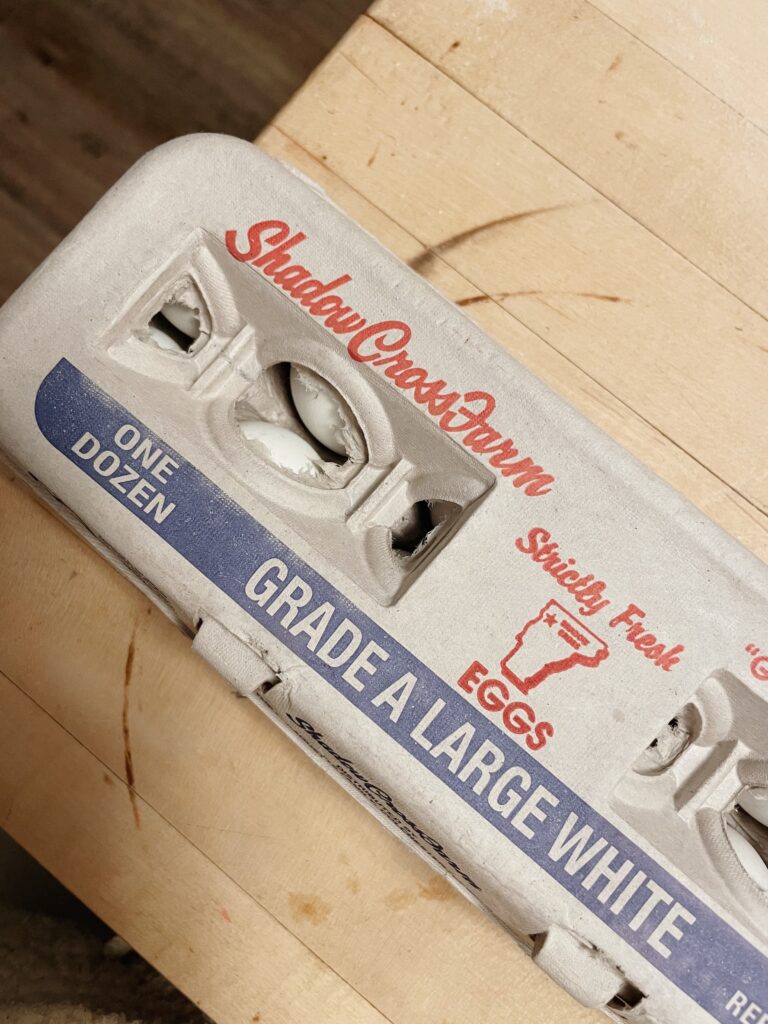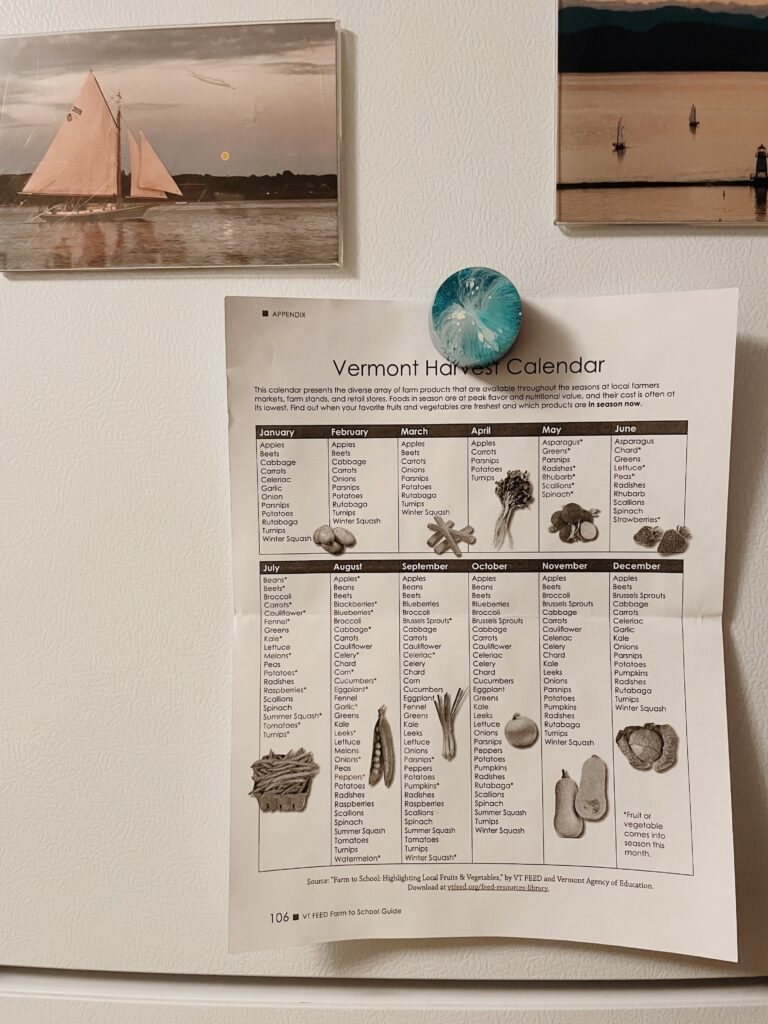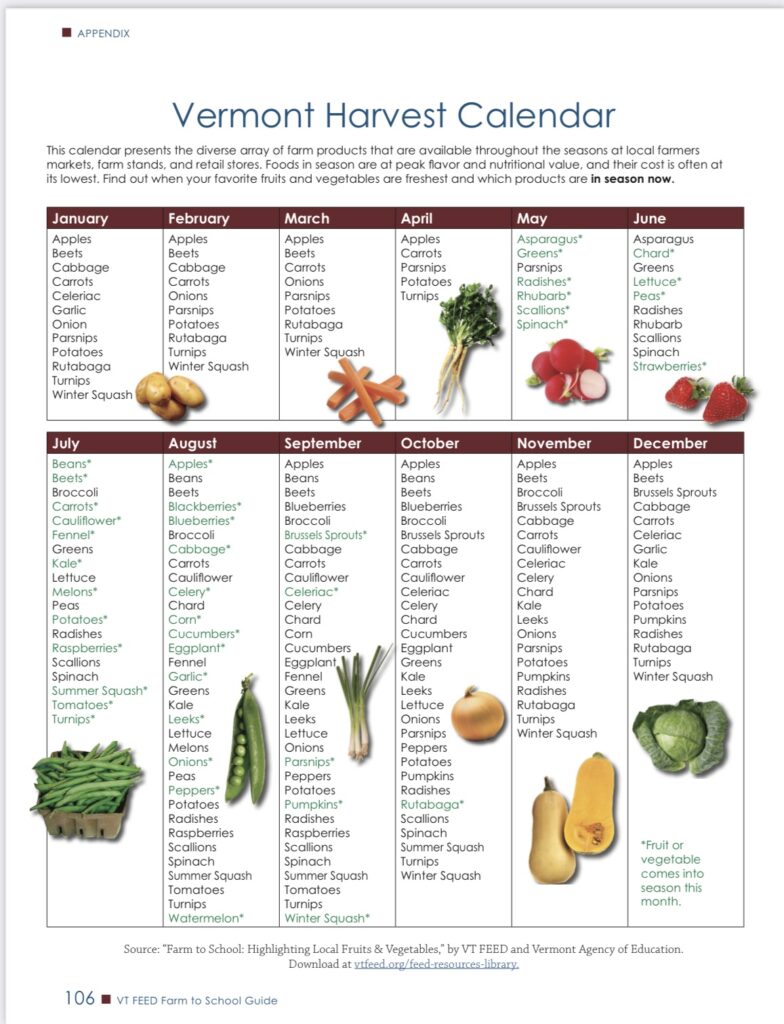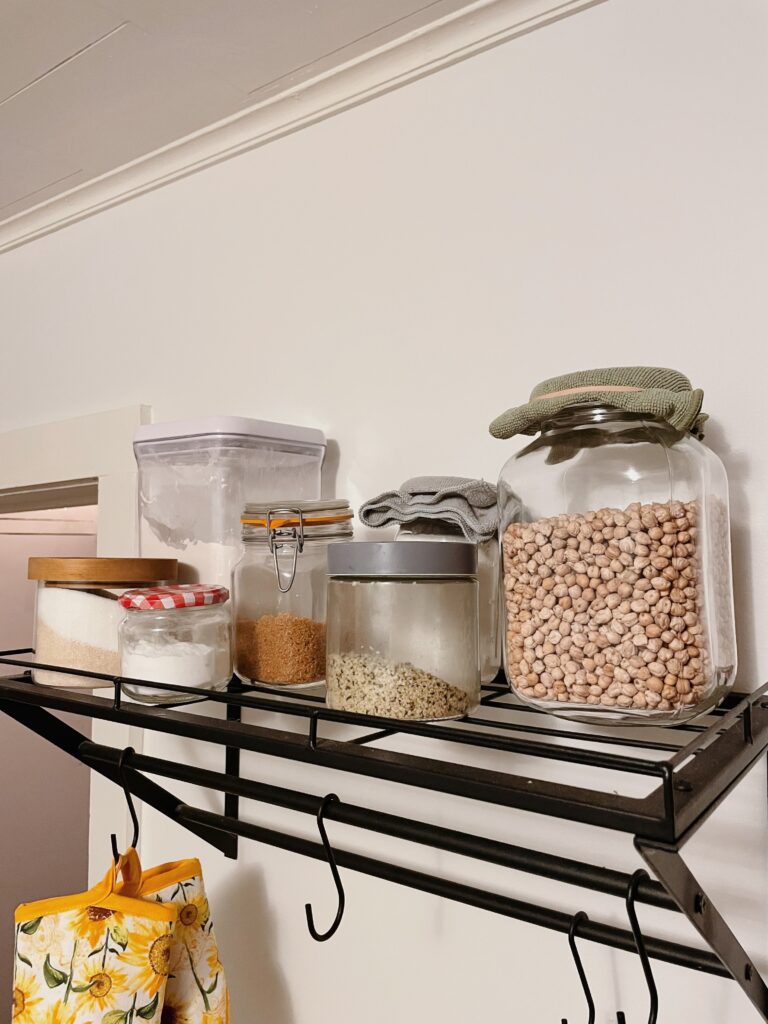If you missed last week’s post, this writing season is going to revolve around the actions that I’m taking to make my life more environmentally sustainable. If you want to read some background on this you can check out that post here! This sustainability series will start in my kitchen. Not only does the food we eat have big implications for our planet, but changing the way that we store that food, how we deal with food scraps, and where we buy our food can be hugely impactful.
This post is geared more towards specific things I am doing, and so it does not delve into the background of the environmental impacts that guided these decisions. At the end of the post I’ve included a list of resources for some further information and background! My kitchen still has a long way to go, so this post will include things that I have implemented as well as ideas for the future. If you have ideas or suggestions, leave them in the comments or reach out by email!
- Shop local
The reasoning behind this is really simple to wrap our heads around. Eating a squash from a farm 3 miles down the road comes at a significantly lower carbon cost than an avocado from 3000 miles across the country. The change I’m making around this is to try and be a lot more intentional with what I’m buying. In the summer months it’s as easy as stopping at a farmers market, but in the winter it can take some more planning. The closest grocery store to my house sells very few local foods, but eggs are one of the few, so I typically go for those. For more of a selection I go to the closest co-op to me, which does a good job labeling where their local food is from. I also know of a few farm stands that operate through the winter because they grow in greenhouses and I’m excited to check them out.
The thing that I need to let go of here is convenience. With our big box grocery stores we have gotten so comfortable with the convenience factor that we’re often unwilling to let it go. It may take a bit of getting used to, but I’m hoping that I can improve my planning and turn shopping locally into a habit.

- Eat In-Season
Eating locally will likely force me to do this more anyway, but I’d like to be more intentional also about eating in season. I’ve included some resource links pertaining to this at the end of the post in the resources section, one of which can tell you what foods are in season in your state month by month. I printed out a list that I found online and put it up on my fridge as a reminder when I’m planning what I want to look for at the grocery store, co-op and farm stands.
This also can be a really fun way to get creative with your cooking. Right now I’m so used to cooking the same thing consistently because I know that I can get the ingredients year round, but I look forward to challenging myself a bit more in the kitchen.


- Grow your own
This past weekend I started an indoor sprouts garden that I’m super excited to see come to life. Sprouts are (supposedly) pretty simple to grow indoors (tbd, tba), and can be grown throughout the winter. I’ll give an update on that in a few weeks.
The sprouts are serving as a mini introduction to growing much more of my own food. I’m looking forward to starting a backyard garden at my partner’s house this summer, which is something that will be new for me. It doesn’t get any more local than your own backyard so this one is huge!

- Food Storage
This isn’t a very big change for me because for the past couple of years I really haven’t used a lot of disposable kitchen storage. I never buy plastic wrap or ziplock bags. I do use tin foil occasionally. I use glass tupperware for leftovers, or in the past I’ve found old marinara sauce jars are a great size depending on what you’re storing.
One product I’m really into are these little silicone covers. We mostly use them for apples and onions, but they are such a great alternative to plastic wrap.

- Other Changes
- Compost!!
- We currently use a compost pickup service but look forward to getting our own compost tumbler in the spring.
- Reduce meat consumption
- You don’t have to be a strict vegetarian to do the world a lot of good by significantly limiting how much meat you eat! I love saying yes to a delicious backyard burger or a tasty chicken curry, but more often I try to go for the vegetarian option. Currently very into chickpeas!!! (see picture below…)
- Buy in bulk!
- Buying in bulk means way less food packaging waste
- Green cleaning products (this will be a whole blog post in itself)


- Finally – Mistakes/Things I Don’t Recommend
There are some things that I’ve bought thinking that I was being more environmentally sustainable, only coming to realize I might have made a mistake.For example: reusable plastic grocery bags. The fact that they’re reusable is great, but the material they are made of is something to question. Typically, reusable grocery bags are made of thicker and more rugged plastic than the disposable ones. Yes, I use them many more times, but when they eventually end up in a landfill they are still going to take a huge amount of time to break down.
This doesn’t mean that I’m going to replace all of my reusable bags! What’s next is that I keep the bags I already have for as long as I can, but when it’s time to replace them I either buy bags that are made of organic cotton or used bags from a thrift store.
The point of this is that it’s a learning process! And it doesn’t change overnight. Making small changes and being intentional about the way that you’re living is a great first step.
If you have any ideas about making a kitchen more sustainable that I didn’t hit here, I would LOVE to hear them!
~~At the end of these posts I like to make a quick note that I’m making changes based on certain financial and mental bandwidth privileges that I currently have! The conversation about environmentalism is also obviously way more nuanced than “just swap out paper towels for reusable towels”. There are layers and layers and I think this should be acknowledged. There are a lot of systemic things that need to change if we are to combat climate change and address the environmental injustices which are furthering economic divides. Thanks for reading!!~~
Resources!
A great article on Seasonal Eating: https://www.sweetfarm.org/news/eat-seasonally
From that article is this Seasonal Food Guide which will give you what’s in season depending on where you live: https://www.sweetfarm.org/news/eat-seasonally
A short clip on why composting is important: https://www.youtube.com/watch?v=oFlsjRXbnSk
The book that taught me about indoor gardening: https://www.thriftbooks.com/w/year-round-indoor-salad-gardening-how-to-grow-nutrient-dense-soil-sprouted-greens-in-less-than-10-days_peter—-burke/10147436/item/14276193/?gclid=Cj0KCQiAq5meBhCyARIsAJrtdr7hA8uZTJWp4zL9tkAp8gl1HKPFPuMLHTPABhMxTFcMOJHsNVzcjQgaAovBEALw_wcB#idiq=14276193&edition=9620669
Great details! I’ve also heard another reason to eat local is that food grown we are more vibrationally aligned and resonant with food that lives where we live. It’s a geographically symbiotic relationship.
Another great resource in our area is Chittenden Solid Waste District https://cswd.net. CSWD is a great organization. If full blown composting is overwhelming they will take food scraps (among recyclable items) and turn them into Green Mountain Compost.